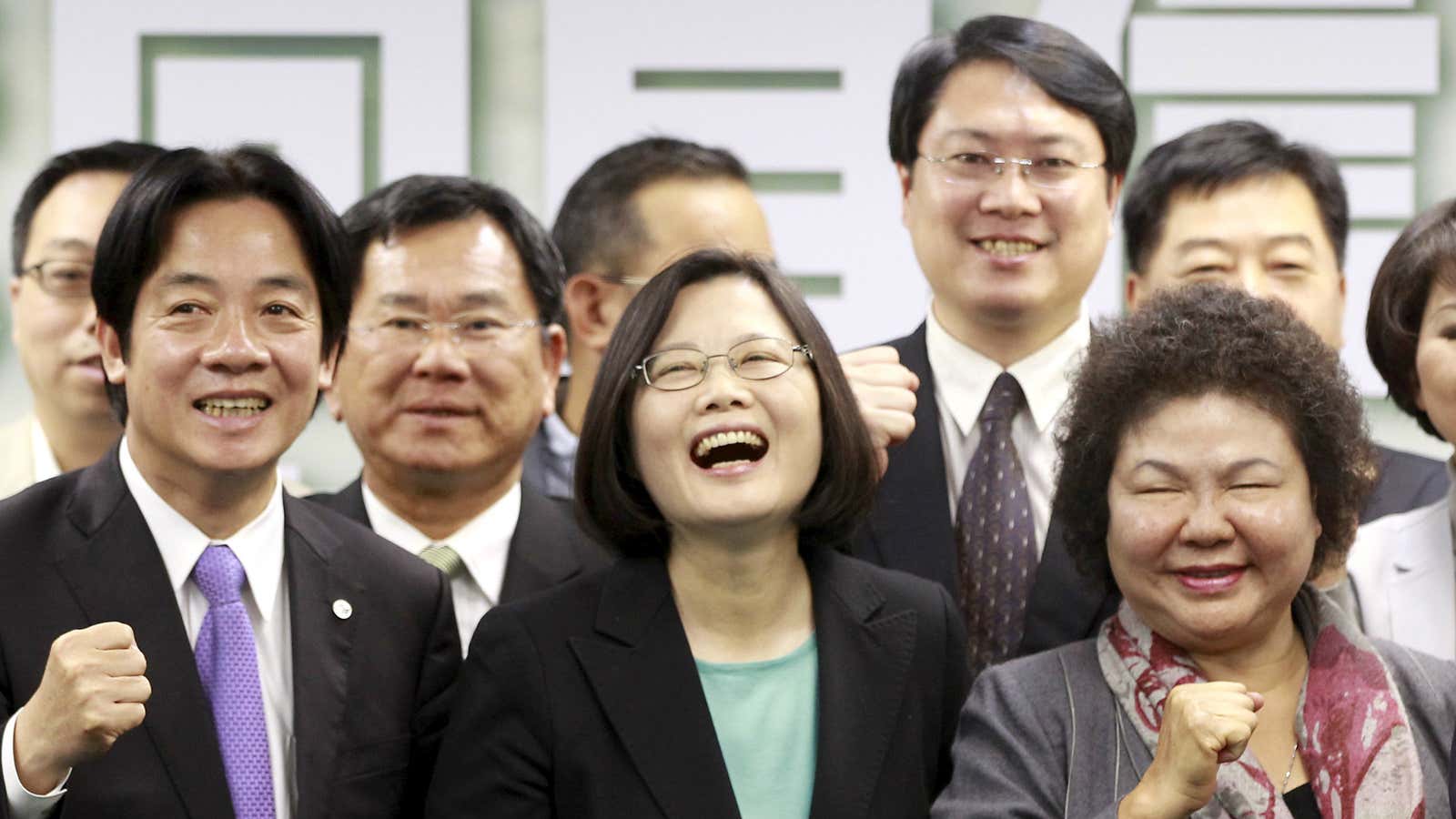An online comment war has erupted between pro-Taiwan and pro-China internet users, but any mainland nationalists hoping to join the fray will have to find a way around China’s Great Firewall.
Yesterday a surge of pro-China comments surfaced on the Facebook page for Taiwan presidential candidate Tsai-Ing Wen, a member of the pro-independence Democratic Progressive Party. The posts contained images of the PRC flag and comments critiquing Taiwan’s democracy.
But for Tsai and other Taiwanese, the posts were cause for amusement rather than annoyance, thanks to a glaring irony: Facebook has been inaccessible from China since 2009, per the government’s online censorship mechanisms.
Tsai sent out a post welcoming the commenters to the social network.
Last night, several posters from across the strait ended up on my Facebook Page. To them, I say, “Welcome.”
In Taiwan, there’s lots of debate [on Facebook] about contemporary politics, and even citizen movements pass through this platform. When citizens self-organize and stand up, different opinions and diverse voices help us advance towards a better society through social debate.
I hope this rare opportunity can help our “new friends” get a complete view of the democracy, freedom and diversity of taiwan. Welcome to the world of Facebook!昨天晚上,有眾多對岸的「網友」滑到我的臉書頁,對此,我表示「歡迎光臨」。在臺灣,有許多對時政的討論、甚至公民行動,都是透過這個平台,由人民自主組織起來的;不同的意見、多元的聲音,也讓我們在交流論辯中,一步步往更美好的社會前進。希望這難得的全新體驗,可以讓「新朋友」更完整的看見民主、自由、多元的臺灣。歡迎大家來到臉書的世界!
Posted by 蔡英文 Tsai Ing-wen on Tuesday, November 10, 2015
While the identity of the commenters can’t be verified, the zealous pro-China sentiment and use of simplified characters (a script used in the mainland but not Taiwan or Hong Kong) suggests that they’re not from the island. While it’s possible some of the pro-Chinese commenters were using Facebook from abroad or with a VPN, intriguingly, the unexpected presence may also have come from Beijing-paid mainland commenters known as fifty-centers who regularly cover domestic message boards with nationalist rhetoric—with an exceptional assist from Chinese authorities.
A pro-China propaganda surge on the forbidden social network might seem ironic, but it highlights how the upcoming election remains high stakes for both Taiwan and mainland China.
Relations between the two territories reached a milestone last weekend when Chinese president Xi arrived in Singapore to shake hands with Taiwan president Ma Ying-Jeou, a member of the pro-unification Nationalist (KMT) Party. Tsai publicly supports Taiwan’s status-quo, grey-area relationship with mainland China. But her affiliation with a party that grew out of the island’s pro-independence movement makes her election unsavory for the CCP.
Unfortunately for China, it’s quite likely she’ll take Ma’s position—Tsai leads the island’s popularity polls with 48% support against 21% for KMT candidate Eric Chu, himself a last-minute substitute for the party’s original pick.




